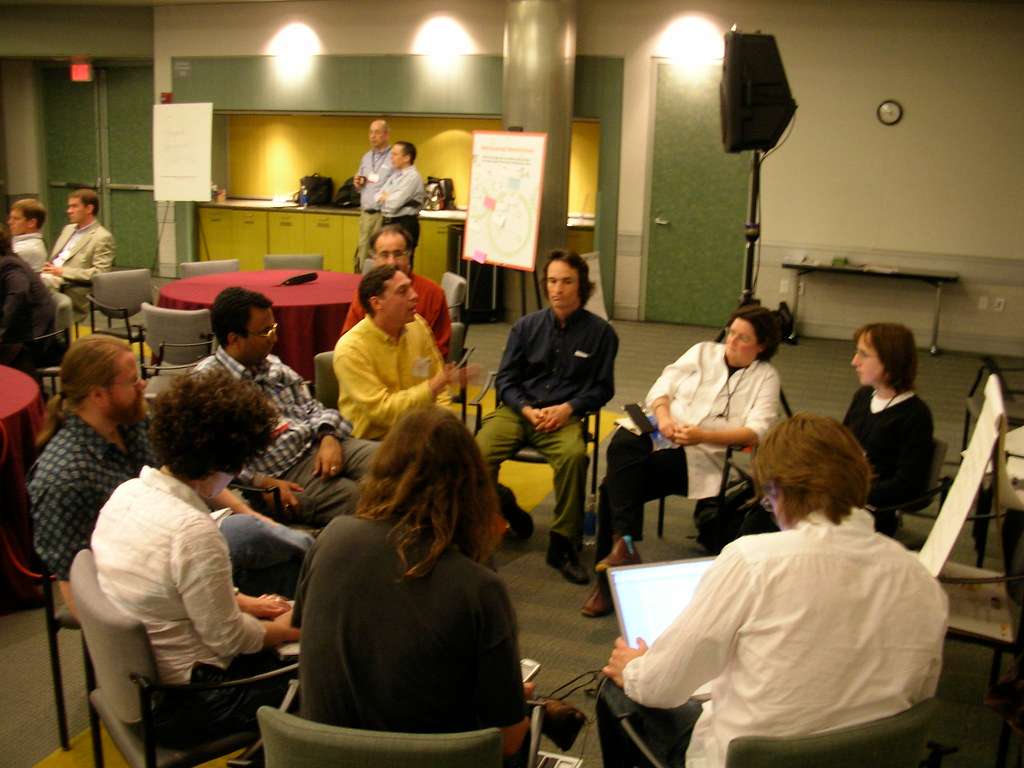Anxiety is a common mental health condition that can cause significant distress and interfere with daily functioning. While individual therapy can help manage anxiety, group therapy has emerged as an effective and accessible form of treatment for those looking for additional support. In this blog, we will explore the benefits of anxiety group therapy, how it works, and what to expect from participating in a group program. You will also find the answer to your question ” How to find anxiety group therapy near me?”. Whether you’re considering group therapy for the first time or looking to learn more about this form of treatment, this blog will provide valuable insights and information.
Contents
What is Anxiety Group Therapy?
 Anxiety group therapy is a form of therapy where a group of individuals with anxiety disorders meets together to discuss their concerns and learn coping strategies. It is led by a trained therapist who facilitates the discussions and provides guidance on managing anxiety. Group therapy can help individuals with anxiety disorders feel less alone and isolated, as they realize that others are going through similar experiences.
Anxiety group therapy is a form of therapy where a group of individuals with anxiety disorders meets together to discuss their concerns and learn coping strategies. It is led by a trained therapist who facilitates the discussions and provides guidance on managing anxiety. Group therapy can help individuals with anxiety disorders feel less alone and isolated, as they realize that others are going through similar experiences.
It also allows participants to share their experiences, learn from each other, and practice new coping skills in a safe and supportive environment. Anxiety group therapy can be an effective treatment option for those who prefer a group setting and want to learn from others with similar struggles.
How Is Group Therapy Delivered?
Group therapy can be delivered in a variety of ways, depending on the needs and preferences of the participants and the therapist. Here are some common methods of delivering group therapy:
In-person sessions
In-person group therapy sessions involve participants meeting face-to-face in a designated therapy space, such as a conference room, therapist’s office, or community center. The therapist may provide a structured curriculum or facilitate open discussions, with opportunities for participants to share their experiences and receive guidance from the therapist. The group sits and discusses their symptoms, progress, and recovery. The idea behind such sessions is to inspire everyone in the group.
Online sessions
 Online group therapy sessions involve participants connecting virtually through video conferencing software, such as Zoom or Skype, to participate in group therapy sessions. The therapist may provide a structured curriculum or facilitate open discussions, with opportunities for participants to share their experiences and receive guidance from the therapist. Online sessions can save time and money as well.
Online group therapy sessions involve participants connecting virtually through video conferencing software, such as Zoom or Skype, to participate in group therapy sessions. The therapist may provide a structured curriculum or facilitate open discussions, with opportunities for participants to share their experiences and receive guidance from the therapist. Online sessions can save time and money as well.
Structured curriculum
In group therapy, a structured curriculum may be used to guide the sessions. This may involve focusing on specific topics or themes related to anxiety. For example, cognitive-behavioral therapy techniques or mindfulness meditation practices. The therapist will lead the group through the curriculum and guide them on how to apply the techniques learned to their daily lives.
Open discussion
In open discussion group therapy, participants are allowed to share their experiences and concerns related to anxiety in a safe and supportive environment. The therapist facilitates the conversation and guides as needed. This format allows participants to learn from each other and receive feedback on their thoughts and feelings.
Homework assignments

In group therapy, homework assignments may be given between sessions to help participants apply what they learn in therapy to their daily lives. This may involve journaling exercises, practicing relaxation techniques, or implementing new coping strategies. The therapist will review the homework assignments with the group during the next session and provide feedback as needed.
Role-playing exercises
In group therapy, role-playing exercises may be used to help participants practice new skills or techniques in a safe, supportive environment. This may involve acting out scenarios related to anxiety and practicing how to respond more positively and constructively. It is similar to a rehearsal for a play or act, in which the actors rehearse thoroughly before the actual performance on stage.
Supportive environment
In group therapy, the therapist works to create a supportive environment where participants feel comfortable sharing their experiences and supporting each other through their struggles with anxiety. The therapist may use various techniques, such as active listening and empathy, to build trust and encourage open communication. This creates a safe space for participants to learn and grow.
Finding A Group Therapy Near Me
Given below are some ways through which you can find Anxiety Group Therapy near your place:
Search Online

Online resources are the best way to find Group Therapy for anxiety near your place. Various websites allow you to search for therapists and mental health programs in your area. You can filter results by specialty or insurance, and read reviews from other patients. Remember to check the program’s qualifications and credentials before making an appointment.
Referrals
Referrals are another way through which you can find good Group Therapy. You can ask your primary care physician or therapist for a referral to a group therapy program in your area. They may know about local programs and can make recommendations based on your specific needs. Referrals can also come from mental health organizations of the country or city you are residing in.
Recommendations
Recommendations for group therapy can come from friends, family members, or colleagues. They might have participated in a program themselves or know someone who has. You can ask them about their experience, the qualifications of the therapist leading the group, and the structure of the program. However, remember that what works for one person may not work for another.
Insurance Provider
Another possible way to find group therapy is to ask your insurance provider. They may cover group therapy sessions, and they may have a list of in-network mental health providers in your area that offer group therapy. You can ask them for any therapy covered under your plan, or any discounts available. This can help you to plan finances before joining a group therapy
Benefits Of Group Therapy For Anxiety
 Here are some benefits of group therapy for anxiety:
Here are some benefits of group therapy for anxiety:
- Peer support: Group therapy allows you to connect with others who are going through similar struggles. They also provide a sense of validation and support.
- Learning from others: In group therapy, you can learn from others who have found ways to manage their anxiety. For example, coping strategies or mindfulness techniques.
- Reduced isolation: Anxiety can often make you feel isolated and alone. But, group therapy can help you feel more connected to others and less alone in your struggles.
- Cost-effective: Group therapy can be a more cost-effective option compared to individual therapy. This makes it more accessible for those who may not have insurance or have limited financial resources.
- Social skills development: It can also help participants develop social skills and improve their relationships with others. This ultimately can in turn reduce anxiety and improve overall well-being.
- Additional perspectives: You can gain additional perspectives on your anxiety from both the therapist and other group members. This can lead to greater insight and growth.
Conclusion
To sum up, Group Therapy is an effective form of treatment for individuals struggling with anxiety. By providing a supportive environment for individuals to connect with others, learn from each other, and develop coping skills, group therapy can help reduce symptoms of anxiety and improve overall well-being. Whether delivered in person or online, group therapy offers a cost-effective and evidence-based approach to managing anxiety. If you’re struggling with anxiety, consider reaching out to a mental health professional to learn more about group therapy and whether it may be a good fit for you.
For more information, please contact MantraCare. Anxiety is a common mental health condition characterized by persistent feelings of worry, fear, and apprehension. If you have any queries regarding Online Anxiety Counseling experienced therapists at MantraCare can help: Book a trial Anxiety therapy session.


